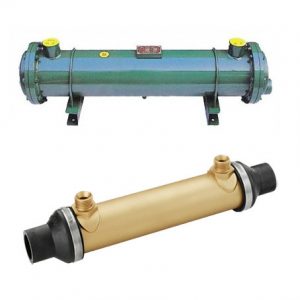Oil cooler heat exchangers
Product Description
Tipo Oil cooled heat exchangers are water shortage and increasing costs, together with more recent concerns about water pollution and cooling tower plumes, have greatly reduced industry’s use of water cooled heat exchangers. Consequently, when further heat integration within the plant is not possible, oil cooled heat exchangers are now usual to reject heat directly to the atmosphere, and a large proportion of the process cooling in refineries and chemical plants takes place in Oil Cooled Heat Exchangers.
Features:
- Oil Cooler is regularly provided in straight length in toughened and half hard temper.
- Oil Cooler formed by are metal enterprises not just have the solid resilience.
- In any case, have the most reliable measurements all through the tube length.
- The tube surface is spotless both inside and outside with no harsh stains.
- Oil Cooler created by metal businesses are appropriate to move warm in a wide assortment of working conditions and to decline to acknowledge rot for the longest timeframe conceivable under the harshest working conditions.
- Oil Cooler is more effective than shell and tube exchangers for low stream rates.
Applications:
- Power plants
- Used across several industries
- Hi tech technology used
- Top class quality
- Excellent performance
- High durability
- Low cost
- Low maintenance
- Industrial Oil Coolers heat exchangers are widely used in refrigeration
Specifications:
- Oil cooler also contributes to lowering the engine-temperature.
- As it begins to break down; oil loses its lubricating, as well as its cooling, properties. .
- Oil cooling kits exist for both motors and automatic transmissions.
- Oil cooler not only functions as a lubricant but also as the coolant for a number of parts.
- Oil cooler can be connected to through to the high-performance blocks by removing the plugs above the oil filter pad.
- Oil cooler which includes parts such as the crankshaft, bearings, camshaft, rods, and pistons, is cooled only by engine oil.
Advantages:
- Oil has a higher boiling point than water, so it can be used to cool items 100°C or higher.
- Oil is an electrical insulator; it can be used inside of or in direct contact with electrical components.
- Oil Cooler is more effective than shell and tube exchangers for low stream rates.
Image:


